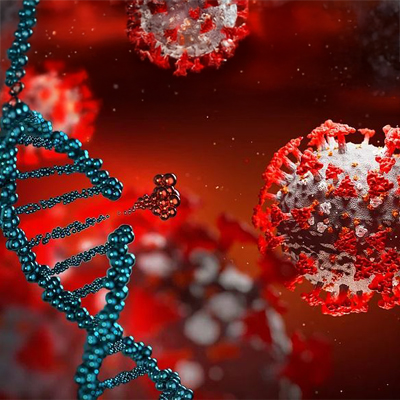Ubiquitin-Specific Proteases

Strong 8k brings an ultra-HD IPTV experience to your living room and your pocket.
Ubiquitin-Specific Proteases (USPs) play a vital role in regulating protein degradation and maintaining cellular homeostasis. Recent advancements highlight the therapeutic potential of targeting USPs in cancer treatment, where they are involved in processes like cell cycle control and DNA repair. Innovative research into USP inhibitors offers promising avenues for drug development, especially in resistant tumor types. As the field of cancer biology and protease research evolves, understanding USPs could unlock novel strategies for precision medicine.
The ubiquitin-proteasome system (UPS) is a critical pathway in maintaining protein homeostasis within cells. Among the key components of this pathway are enzymes known as deubiquitinating enzymes (DUBs), which regulate the removal of ubiquitin from substrate proteins. A major class of DUBs, Ubiquitin-Specific Proteases, plays a pivotal role in various cellular functions, including protein degradation, DNA repair, signal transduction, and cell cycle regulation.
Dysregulation of Ubiquitin-Specific Proteases (USPs) has been linked to numerous human diseases, most notably cancer, neurodegenerative disorders, and viral infections. In cancer biology, certain USPs have been found to stabilize oncogenic proteins, making them attractive targets for therapeutic intervention. For example, USP7 and USP14 are commonly overexpressed in several tumor types, promoting cell survival and proliferation. Inhibiting these enzymes has shown promise in preclinical studies, where USP inhibitors led to cancer cell apoptosis and increased sensitivity to chemotherapy.
Neurodegenerative diseases such as Parkinson's and Alzheimer’s also involve abnormalities in protein turnover. In these conditions, the failure to remove toxic protein aggregates contributes to disease progression. USPs help modulate the clearance of misfolded proteins, and thus, therapeutic strategies aiming to enhance or inhibit specific USPs may offer new hope for managing such disorders.
Recent research in virology has uncovered the role of Ubiquitin-Specific Proteases in viral replication and immune evasion. Viruses often hijack host USPs to enhance their replication or to prevent the degradation of viral proteins. This opens up a unique window for developing antiviral therapies that target specific DUBs to block the viral life cycle.
Drug discovery targeting USPs is a rapidly advancing field. Although early attempts faced challenges due to the structural similarity among DUBs and the complexity of substrate interactions, recent breakthroughs in structural biology and high-throughput screening have identified several potent and selective USP inhibitors. These compounds are currently undergoing preclinical or early clinical evaluation, demonstrating the potential for real-world applications.
Moreover, advancements in induced proximity technologies and proteolysis-targeting chimeras (PROTACs) are further enhancing the therapeutic landscape for USP-targeted drugs. By promoting selective degradation of pathogenic proteins regulated by USPs, these innovative approaches could revolutionize treatments for previously undruggable targets.
The therapeutic relevance of Ubiquitin-Specific Proteases is expected to expand significantly with the integration of genomics, CRISPR-based gene editing, and precision medicine. As we continue to unravel the biological intricacies of USPs, there is growing optimism that targeting this enzyme family could unlock novel pathways for treating a wide spectrum of diseases.
In conclusion, Ubiquitin-Specific Proteases represent a critical regulatory mechanism in cellular function and a promising target class for drug development. As research progresses, they will likely play an even greater role in the future of precision medicine, offering new avenues for diagnosis, treatment, and improved patient outcomes.
Stay ahead in therapeutic innovation—explore how USPs are redefining drug discovery today!
https://www.pharmafocusasia.com/articles/unlocking-new-avenues-in-cancer-therapy-by-targeting-ubiquitin-specific
Note: IndiBlogHub features both user-submitted and editorial content. We do not verify third-party contributions. Read our Disclaimer and Privacy Policyfor details.


